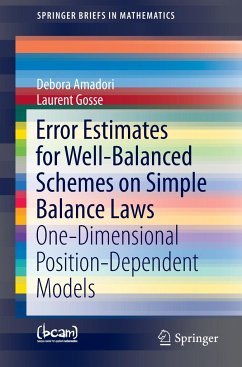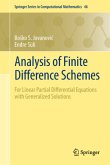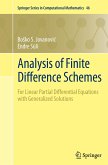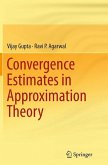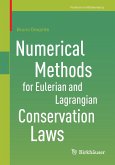This monograph presents, in an attractive and self-contained form, techniques based on the L1 stability theory derived at the end of the 1990s by A. Bressan, T.-P. Liu and T. Yang that yield original error estimates for so-called well-balanced numerical schemes solving 1D hyperbolic systems of balance laws. Rigorous error estimates are presented for both scalar balance laws and a position-dependent relaxation system, in inertial approximation. Such estimates shed light on why those algorithms based on source terms handled like "local scatterers" can outperform other, more standard, numerical schemes. Two-dimensional Riemann problems for the linear wave equation are also solved, with discussion of the issues raised relating to the treatment of 2D balance laws. All of the material provided in this book is highly relevant for the understanding of well-balanced schemes and will contribute to future improvements.
"The main purpose of the book is to present an analysis of global (in space) error bounds for well-balanced schemes with a specific emphasis on the time dependence of such bounds. ... The book will be of interest to anyone willing to design and/or study well-balanced schemes, either from an analytical or practical point of view. ... this book will surely contribute to future improvements in the field." (Jean-François Coulombel, Mathematical Reviews, August, 2016)
"All of the material provided in this book is highly relevant for the understanding of well-balanced schemes and will contribute to future improvements. Each chapter is more or less self-containing, it has its own abstract, introduction and the list of references." (Vit Dolejsi, zbMATH 1332.65132, 2016)
"All of the material provided in this book is highly relevant for the understanding of well-balanced schemes and will contribute to future improvements. Each chapter is more or less self-containing, it has its own abstract, introduction and the list of references." (Vit Dolejsi, zbMATH 1332.65132, 2016)

